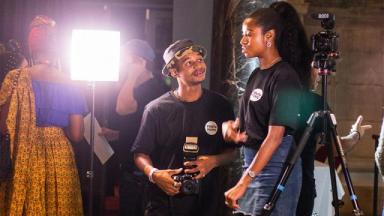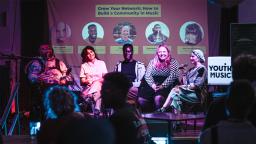
Photography: Daniel Blake | @danielblakevisuals
Last week, our NextGen Community event series headed to Glasgow. In association with Ticketmaster UK, a panel of industry experts shared their top tips on growing community and building an audience as a music creative, followed by performances from local NextGen community artists and networking.
Couldn't make it but still want our panel's insider advice? We've got your back.
From the importance of attending in-person events and making face-to-face connections, to getting the most out of social media platforms, these are tried-and-tested learnings from industry experts on how creatives can build a community.
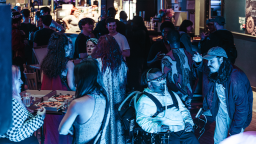
Attending events
- Regularly attending events in your area is a great way to connect with other artists and industry professionals.
- In smaller cities or close-knit creative regions like Scotland, attending events is crucial for networking and community building.
- Set a goal to talk to at least three new people every time - this habit will lead to new collaborations and opportunities.
Promote inclusivity with an open dialogue
- If you are hosting an event or performing a gig, make your spaces more inclusive by fostering open dialogue and communication.
- Address issues that matter to your community and ensure that access is part of the conversation, so everyone can be included.
- Work with a diverse range of people to broaden your community and perspectives.
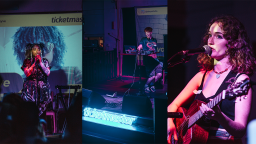
Utilise social media to tell your story
- Social media is a great way to keep people updated with your journey. Forget about the algorithm and post what feels authentic to you. Focus on engaging with your audience rather than just building a brand.
- Reach out to others creatives you admire online - so many collaborations and opportunities come from networking on social platforms.
- However, while social media is crucial, especially platforms like TikTok, be mindful of your mental health. Find a balance between content creation and self-care.
Don’t be afraid to be vulnerable
- Embrace vulnerability when reaching out to others; it’s a strength, not a weakness.
- Being honest and authentic in your interactions can create deeper connections with your audience and peers.
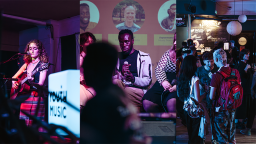
Leverage platforms and radio for exposure
- Use platforms like Ticketmaster Local to gain exposure, particularly if you’re an emerging, grassroots artist.
- BBC Introducing are always looking for new music - don’t miss out on this avenue for exposure and upload your tracks for the chance to be played on the airwaves.
- These channels can help you make connections and build your community by highlighting your work to a broader audience.
The power of one
- In smaller areas, one person can often be your gateway to a whole network of musicians and artists.
- Don’t underestimate the power of local networks - get to know one person, and you’ll likely meet many more.
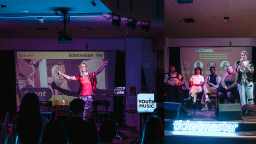
Be persistent
- Don’t be scared to ask for favours or send follow-up emails a few times if necessary.
- Persistence is key when trying to connect with people in the industry you admire.
Be Creative and Authentic
- Find artists whose work you admire and learn from them, but always stay true to your own style and voice.
- Use your community to collaborate and grow organically before investing in paid promotion.
Check these out...
Join Our NextGen Community
Are you aged 18-25 and chasing a career in music, but finding it tough, closed off and hard to break in to?
Start finding your way in with Youth Music's NextGen Community.
Opportunities Board
Discover early stage jobs in the music industry, as well as opportunities to perform, develop skills and gain experience.
The Importance of Networks and Communities for Emerging Creatives
In an industry rooted in connection, being part of a supportive network or community of fellow creatives can take an artist's career to the next level.


